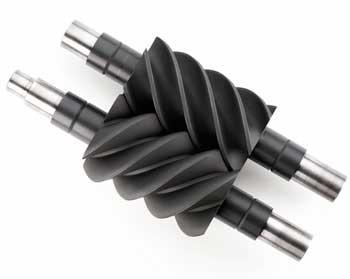|
ATLAS Copco has launched its new energy-efficient technology for air blowing applications: the ZS screw blower. Screw technology on average is 30 percent more energy-efficient compared to lobe technology. The ZS screw blower will replace the company’s entire range of ‘Roots’ type rotary lobe blowers.
|
|







